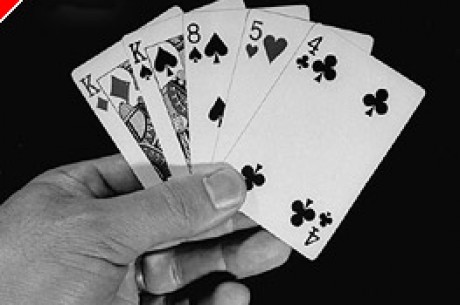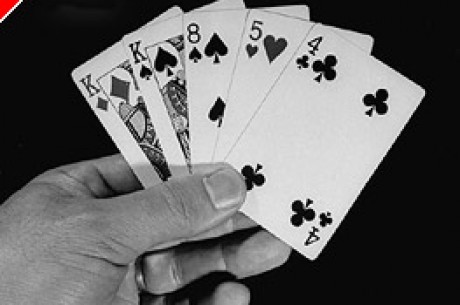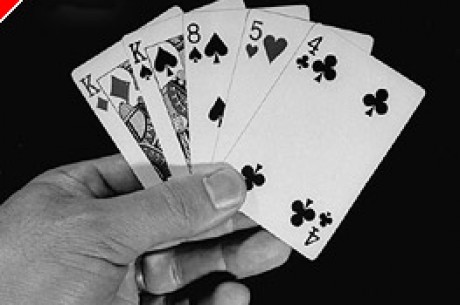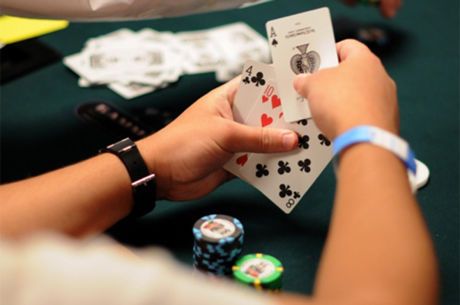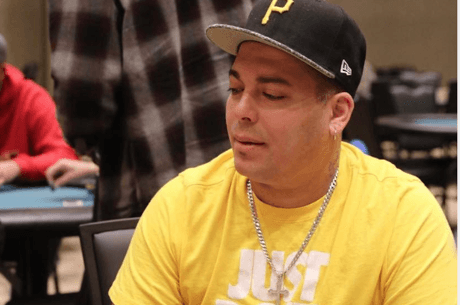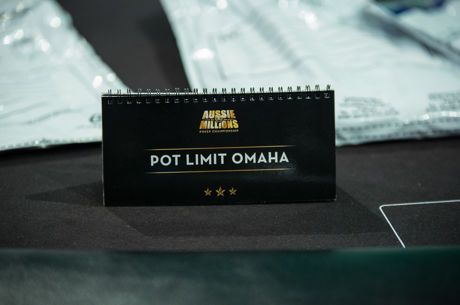Introduction to Omaha - Weighing Up Stack Sizes
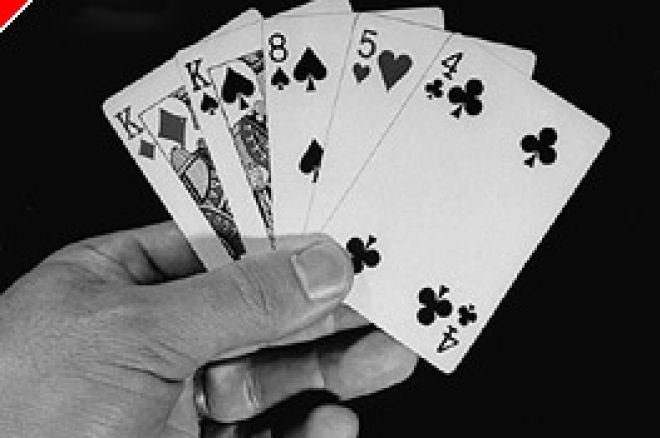
Tony is a regular on-line and card room player living in England. He mostly plays Texas Hold'em and Omaha (High and Split) at fixed, pot and no limit, at both cash and tournament tables.
Introduction
There are times in poker when you wonder what possesses other players to do the things they do. This question tends to manifest itself a few milliseconds after a giant pot has just gone the way of one of those players at your vast expense!
Sometimes though, it pays to hold your tongue and emotions in check and think for a short while about the circumstances of the hand and how it developed. More pertinently, was there an alternative way of playing the hand which might have encouraged your opponent to give up the hand before he drew out on you?
Starting Hand Deluxe!
This subject of playing a hand another way nagged at me after I had suffered a defeat in a hand where I felt confident of victory but was denied by a river card. That is not unusual in itself but when I saw the cards that had beaten me, I had to do a double take before realising that my opponent had called off a great deal of his chips after the turn card with nothing of substance - at least it was not the kind of draw that warranted a call on the pot odds offered.
Let me summarize this hand because it is an Omaha player's worst nightmare. All amounts bet are from memory but are fairly accurate.
I was at a 10-handed table of $1/$2 Pot Limit Omaha high, so I put in the obligatory $200 to start. I was building my stack up slowly when I was dealt, on the button, As Ac Ks Qc, about as sweet a hand as you could ask for - double suited aces with top kickers.
When the betting came to me, there had only been the usual limping in for $2 apiece. I therefore raised the betting to $6 rather than the pot as I prefer not to differentiate between hands that I raise with at this early stage. A straight pot-raise will tend to suggest to others - "Aces"!
I received three callers and saw a flop of Js 7c 4s. Just about perfect for me; a nut flush draw and a safe flop. No-one could have made a straight yet; only a 2-pair or a set could beat me here. It was checked round to me (which was encouraging) so I decided to test the waters and pot raise about $35. I received two callers, and the turn was a red 7. Not so good seeing a pair and no help to my flush. However, if someone was sitting with a J4 2-pair, I had the consolation of overtaking them with my A7 2-pair.
Now it was decision time and a difficult one. I decided to be aggressive and pot-raise again, because the two players once more checked to me. If they had made a set of 7's or better, they were not letting on. This was too much for one player but the other called for $140. The pot odds were probably 2/1 but did he already have a made set? He had only about $40 left so he was now clearly pot committed.
The river was a red 5 and he checked to me again. I decided to continue representing strength and asked for his remaining chips. He pondered a while which made me wonder if he was looking at a missed flush draw too. However, he called and revealed a complete ragbag of cards including the 6 and the 3. His straight made by the 5 on the end defeated my aces.
My immediate disbelief centred around why he would call the huge pot raise on the turn. My opponent was clearly relieved because he said "I got lucky - I knew you had aces". I didn't ask what possessed him to call on the turn but I suppose he may have felt having already put in $50, he might as well call all the way and pray for help. Not every player is aware of pot odds as a concept after all.
Of course, with my opponent having called my pot raise on the turn, I found myself stranded without ammunition. He only had $40 left which meant he was pot-committed with a vengeance and I would be unable to bluff him off the end.
A deeper scenario
Let's make an assumption that we played the hand again but the two players left had much larger stacks. Now, after the turn bets, my opponent makes his straight with his rag 63 combination. The first thing to note is that his cards make the low end of the 7-high straight. He should, if aware of the danger signs on an Omaha board, be afraid of the possibility that I am sitting with 86. In addition, his betting didn't suggest to me that he had another 7. He should therefore also be afraid of a full house given the strength of my bet when the second 7 hit the board.
If I have several hundred dollars left in my pile, I might judge that my opponent isn't strong and pot raise once more. Only, this time, I am talking about a pot of over $400. With a low-end straight, is this player seriously going to call? I'll leave that to you to decide. It would in fact be a bold move for me to bluff that way and for that much in the first place but rest assured the top pros do it all the time.
Sadly, the fact is I did not have a deep stack and my opponent had even less. Therefore could I have manufactured a situation to leave me with a more meaningful stack on the end? Possibly! When the 7 fell on the turn, maybe I should have done the sensible thing and bet a much smaller sum. After all, I would suggest that is normal practice if the board pairs when you are drawing to a flush or straight. If I bet another $40, that would make most hands fold unless they caught a 7 or full house. Clearly, this individual that called my pot raise would have thought nothing of calling $40 but he has done this because there is another card to come.
On the river 5, I would have had about $180 left and my opponent $140. I could now contemplate a bluff pot raise of some meaning. Would it make my opponent stop and think about potential hands better than his low straight?
That is hard to say. On balance, I think he would still call. Yet, when faced with a decision when there are no cards left to improve your hand, a decision takes on added meaning. It is far more likely that a player will fold a winning hand to a big bluff on the river than he would to a bluff on the turn. The secret is to have the wherewithal to fire both barrels at that critical moment.
Conclusion
In pot limit Omaha, it is essential not only to master the art of card-reading and people-reading. You also need to take note of the sizes of each player's chip stacks when you get involved in a potentially big pot. It can often pay to hold back the gas when you have a monster drawing hand for the moment when you miss your cards and can only win the pot by bluffing. Saving a chunky pile for the river can win you good pots simply by making a big bet on the end representing a made winner. You must always bear in mind that Omaha is a drawing game and many players will pay handsomely to try to make their draws on the river. When they miss or fail to improve a moderate hand, they can be intimidated to fold by a big bet on the river.
Always be aware of your stack size and those of your opponents. It may help you gain an edge.
3 November 2005
Poker Blue have a WPT, or WSOP freeroll a week. Check it out.

